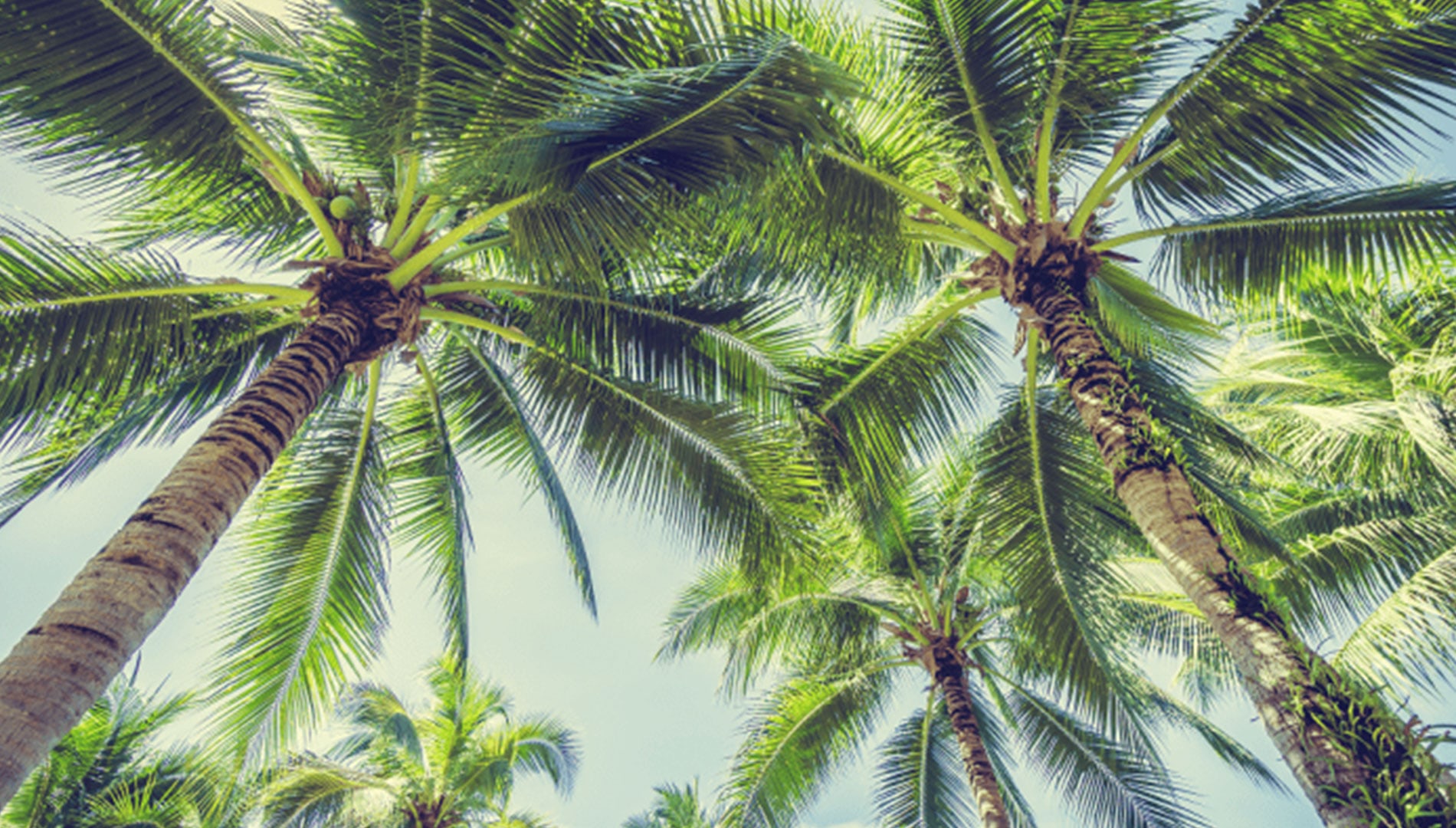Weather & When is the best time to travel to Maldives
Since the beginning of tourism in Maldives in 1972, this archipelago has been carving its name into the tourism industry with an unrelenting passion for hospitality. Due to that passion, Maldives has become one of the most sought after travel destinations for people from all over the world and the name ‘Maldives’ has nearly become a household name in almost every corner of the globe. The fine, smooth sand of this island nation fills everyone’s dreams as they fantasise about swimming in its flecked waters alongside sea creatures of all kinds.
Now that you have your heart set on travelling to Maldives, it is important to know as to when you should travel to Maldives for the best experience. Which month is the best? What’s the weather going to be like? What kind of seasons can you expect from an island nation such as this? The answers to these questions lie in this article so stick around and read on to find out when is the best time to visit Maldives!
Weather Conditions In The Maldives
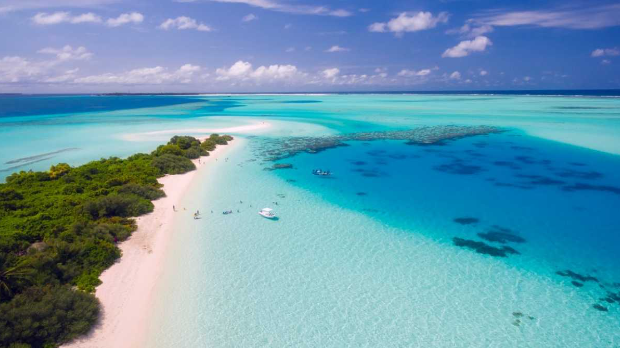
Let’s talk about the weather in Maldives first. This section is going to be pretty detailed so expect a lot of numbers!
The temperature in Maldives shifts quite minimally throughout the year, as the archipelago resides right on the Equator line, and because Maldives is on the Equator, there’s only two seasons: the southwest monsoon which is the wet season and the northeast monsoon which is the dry season. The time period for the wet season is from May to November, while the time period for the dry season is from January to March. December is a transition period from the wet season to dry season and April is a transition period from the dry season to wet season. On average, the temperature fluctuates between 25℃ / 77℉ to 32℃ / 89.6℉ throughout the year, with the climate being warm & humid.
(Source: Maldives Meteorological Service)
Let’s go through what sort of average temperatures & average rainfall you can expect during each season. In the wet season (from May to November), you can expect these average temperatures & average levels of rainfall and average rain days respectively:
May: 28℃ / 82.4℉ & 216mm of rain over 15 days
June: 28℃ / 82.4℉ & 172mm of rain over 14 days
July: 28℃ / 82.4℉ & 147mm of rain over 13 days
August: 28℃ / 82.4℉ & 188mm of rain over 14 days
September: 27℃ / 80.6℉ & 243mm of rain over 15 days
October: 27℃ / 80.6℉ & 222mm of rain over 16 days
November: 27℃ / 80.6℉ & 201mm of rain over 14 days
And as for December, the transitional period from the wet season to the dry season:
December: 27℃ / 80.6℉ & 232mm of rain over 13 days
In the dry season (from January to March), you can expect these average temperatures & average levels of rainfall and average rain days respectively:
January: 27℃ / 80.6℉ & 75mm of rain over 5 days
February: 28℃ / 82.4℉ & 50mm of rain over 5 days
March: 29℃ / 84.2℉ & 73mm of rain over 7 days
And as for April, the transitional period from the dry season to the wet season:
April: 29℃ / 84.2℉ & 132mm of rain over 10 days
Now that we got the averages out of the way, here are the average high & low temperatures you can expect in Maldives throughout the year. In the wet season (from May to November), you can expect these average high & low temperatures respectively:
May: 30℃ / 86℉ at high & 26℃ / 78.8℉ at low
June: 29℃ / 84.2℉ at high & 26℃ / 78.8℉ at low
July: 29℃ / 84.2℉ at high & 26℃ / 78.8℉ at low
August: 29℃ / 84.2℉ at high & 26℃ / 78.8℉ at low
September: 29℃ / 84.2℉ at high & 25℃ / 77℉ at low
October: 29℃ / 84.2℉ at high & 25℃ / 77℉ at low
November: 29℃ / 84.2℉ at high & 24℃ / 75.2℉ at low
And as for December, the transitional period from the wet season to the dry season:
December: 29℃ / 84.2℉ at high & 25℃ / 77℉ at low
In the dry season (from January to March), you can expect these average high & low temperatures respectively:
January: 29℃ / 84.2℉ at high & 25℃ / 77℉ at low
February: 29℃ / 84.2℉ at high & 26℃ / 78.8℉ at low
March: 30℃ / 86℉ at high & 27℃ / 80.6℉
And as for April, the transitional period from the dry season to the wet season:
April: 31℃ / 87.8℉ at high & 27℃ / 80.6℉
If you’re an avid swimmer, diver or snorkeller, you might be wondering which would be the best month to go swimming. As warmer is better, you’ll be better off swimming in either April or May, as both months experience the same temperatures in the ocean: 30℃ / 86℉.
(Source: Holiday-Weather.com)
Best Time To Visit Maldives
Dry Season in Maldives
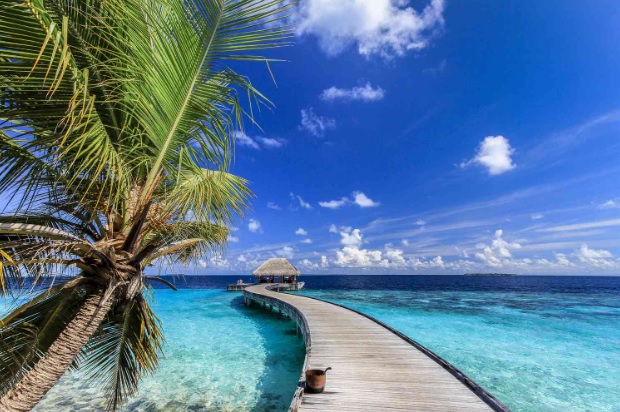
The dry season (from January to March) is often said that that is when Maldives is at its best. The sun is always shining, there’s not a speck of cold in the air (which is one of the reasons why people from winter countries flock here at this time) and there’s next to no rain. Even if there is, the rain dissipates after a short while. Due to this, the dry season is optimal for all sorts of outdoor activities such as football, tennis, padel tennis, picnics, private beach dinners, etc.
Due to the nature of the weather during the dry season, where the sky is almost always clear, it is ideal to go sightseeing around the island or even on a boat (if available at the resort) to see the island and surrounding areas. Depending on where you are, you’ll be able to see the neighbouring islands where if it’s uninhabited the island would look untouched & pristine, and if it’s inhabited you might be able to see people enjoying at the beach or relaxing on joali’s (a Maldivian chair made out of rope).
If you’re lucky (depending on which resort you go to), you might be able to experience one of the oldest cultural crafts which is lacquer work. Rich heritage flows through this artform, showcasing the depth of Maldivian culture. Some resorts even have Bodu Beru, a traditional Maldivian song & dance, during times of celebration, parties and more.
While you’re in Maldives during the dry season, take a boat ride to the capital known as Male’ (if you’re close enough) to take in the urban sights and attractions it has to offer. If you’re something of a history buff, you’ll enjoy visiting the National Museum, where remnants of the past are put up for display to educate & inspire all who come to learn of their lore.
If you’re visiting Maldives in either January or February, a trip to the island of Vaadhoo might be worth it as the island experiences bioluminescence. It has been said that the months from July to February is the most ideal time frame to try and witness this natural marvel.
If you want to dive a bit deeper into the ocean to see its wonders, the Whale Submarine at Male’ might just be able to grant your wish. Dive almost 150 feet deep into the ocean where nature flourishes, untouched by man.
Wet Season in Maldives
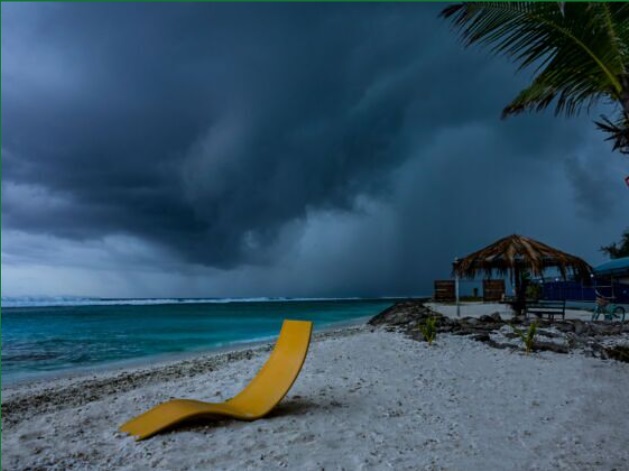
The wet season (from May to November) is the time when rain starts to pour in Maldives a bit more frequently than it does in the dry season. People who love the rain will feel right at home, albeit the rain doesn’t last that long. Vacationing in Maldives in the wet season is an experience in itself as it’s a bit colder and provides a bit of respite from the heat. Even though rain may fall in the wet season, that doesn’t mean your vacation has to become dull, as Maldives has a lot more to offer aside from everything water & beach related.
Entertainment comes in all shapes and sizes in Maldives and every resort will see to it that you’re properly entertained in and out of the water. For out-of-water experiences, take a trip to the spa where you will be thrown into a world of relaxation & tranquility as you feel the stress literally roll off your body. Sign up for a cooking class where you get to learn how Maldivian foods of all types are made so you can cook them for your friends back home. Go for a session of yoga and meditation to strengthen mind, body & spirit. Treat yourself to some delectable snacks and Maldivian foods full of flavor & spices. Whatever the weather, know that you will not have any issue in keeping yourself busy throughout your holiday at Maldives.

One of the activities that tends to take off during the wet season is surfing! There are quite a few spots in Maldives that are known for their affinity for some amazing waves and this is partly due to the wet season, where the waves tend to get bigger & the swells are better during this timeframe. One of those spots is known as Pasta Point at Cinnamon Dhonveli Resort, where it is reserved specifically for guests who’re spending their vacation there and is known as one of the more famous surfing spots in Maldives.
If you’re someone who enjoys taking in all the culture & spiritualism a country has to offer, booking your holiday in either April or May and taking a trip to one of the inhabited islands (the capital Male’, for example) will show what the holy month of Ramadan & the celebrations of Eid are like. Maldives is an Islamic country and they partake in the one-month fasting period known as Ramadan, which is a month of caring, sharing, forgiveness, community & atonement for one’s past sins. The air is filled with a calming sense of duty to do right by your neighbours and share in the fruits of your labour by gifting each other food before breaking the fast at sundown. A truly beautiful sight that is better to be witnessed and experienced first hand.
When all is said and done, we know that you’re booking your trip to the Maldives so that you can relax and recuperate; to take in the warmth of the sun and put your legs up by the sandy beach. MadlyMaldives highly recommends these places for an unforgettably rejuvenating stay, all of which has the some of the finest in food, wellness & lodging:
- Joali Maldives
- Hurawalhi Maldives
- Anantara Veli Maldives Resort
- Amilla Maldives Resort & Residences
- Conrad Maldives Rangali Island
Tips For Visiting During Different Seasons
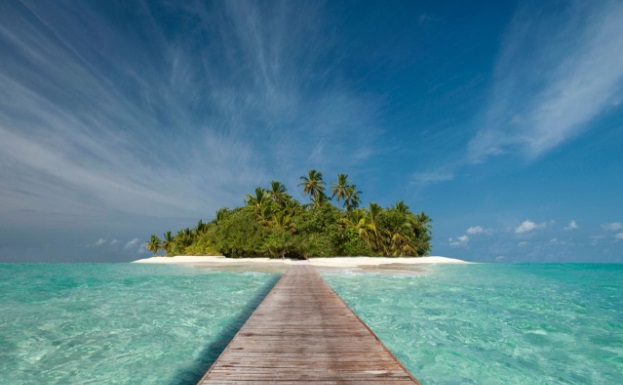
If you’re going to be visiting during the dry season (from January to March) which is the peak season, then it is advised that you visit in April. April is a transitional month from the dry season to the wet season and because of that, it’ll be a tad lighter on your wallet, rather than if you make your booking for January or February which are high profile months for travel to Maldives. Consider some more budget-friendly resorts as well so that you can spend a bit more on activities and such, rather than blowing most of your travel money on an extremely fancy room. Go outside & experience what Maldives has to offer.
To make that process easier, think about making your booking months or perhaps a year in advance, so that you can save a bit in that area as well. Do research into the prices of waterborne activities in Maldives (as these can rack up the cost) and compare which resorts offer the best deals without sacrificing any of the quality.
If you’re going to be visiting during the wet season (from May to November), you have quite a bit to look forward to as well, such as the advantage of making your bookings for a lower price, as this is the off-season for Maldives. Let’s not forget that since this is the off-season, there will be fewer guests at the resorts as well, so you’ll end up having much more quality time with your spouse, your family or yourself, given your travel situation.
While it may be less expensive to travel to Maldives in the wet season, the flipside is that you should exercise caution if you’re doing anything water related. The wet season in Maldives is when it tends to get quite windy out at sea, which in turn increases the strength of the waves so it’s best to ask for the opinions of the resort’s scuba / dive centre experts and always listen to them in that regard. Even if you go out of a boat, caution should be observed as the seas can get quite rough as well.
As mentioned earlier, this is the time of year when Ramadan comes around so it is important to observe the cultural etiquette & religious guidelines on what can and cannot be done in Maldives. We recommend reading up on this article from MadlyMaldives so that you may be well informed on the subject!
Congratulations on making it to the end! We hope that you take your preferences & interests into account when you’re making your bookings, so that you can pick and choose whether to visit during the dry season or the wet season. Whether you want to visit to experience the natural beauty above & under the water or to just kick back & relax, we hope this article gave you the information you need to plan out the most unforgettable vacation you’ll ever experience.

